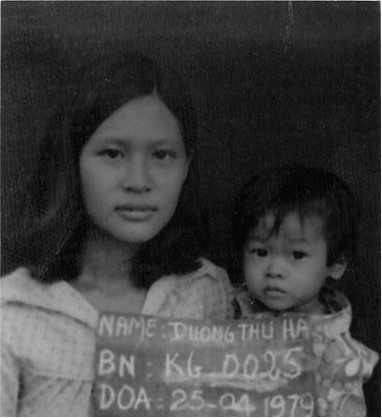This piece was published as a Facebook post on December 5, 2020, nine months after the Covid-19 pandemic resulted in the screaming halt of life-as-usual.
-----------------
My family were Vietnamese Boat People. We fled Vietnam in April 1979, 220 people crammed on a little wooden boat, faring wild seas and surviving pirate raids, making it to a refugee camp in Malaysia. I was 2, my mother 19, my father 27. My little sister was born there in June. In December, we stepped foot on Australian soil, and have made it our home ever since.
In my late 20’s, I discovered Alaska, fell in love with the place, met a man and fell in love. We enjoyed a bi-polar relationship before getting married and I’ve been fortunate to have been able to travel back to Australia regularly to visit with family and friends.
In March 2020, when Covid hit and extreme flight restrictions back to Australia were announced, a terror rose in my body. A desperation to get back home. I was sobbing uncontrollably during the Australian Embassy’s official announcement that nearly all North America-Australia flights were being cancelled for the unforeseeable future.
And yet, as a trauma therapist, I knew that I was having a trauma response: a combination of a thwarted primal homing instinct in the face of danger, and the flight response. Always having an exit strategy is a common trauma survivor trait, and now leaving Alaska was off the cards. My rational brain knew that it was ridiculous: my parents are in great health and I am well-settled and incredibly happy in my life here in interior Alaska.
I kept hearing the words,”There’s no going home.” with a mixture of emphatic and melancholy finality.
After my sobbing subsided to manageable levels (i.e. three days later), I called my parents. After the pleasantries, I shared my experience with them, and asked them some more about their refugee experience, specifically about whether there was a point, or points, in time when a screaming reality hit of “there’s no going home”.
Dad shared that he didn’t allow that that thought to ever enter. He had to hold to hope that one day, he would be able to return to his motherland, to see his family, and walk the tracks of his youth. Our departure was because he was wanted by the Communists and, as such, he didn’t dare to go back, even when his mother died in 1993, for fear that they would imprison him after all those years. He eventually was able to visit home in 1996, 17 years later, to visit his dying father.
To those of you stranded overseas, far from home, I extend to you my father’s hope that sustained him all those years.
Mum shared that, after a few months (we were resettled to Tumut, NSW), she fell into deep depression for a few weeks and had to be hospitalized while Dad took care of us with the help of wonderful locals who were helping to resettle us. She had traumatic homesickness: any talk of home or family would cause her to become quiet and collapsed, depressed. And so, I grew up without hearing the songs or the stories of my people, for traumatic homesickness results in loss of passing on of cultural identity.
Even though I have no pressing need to return to the brick home in Noble Park where I was raised, the bonds of love tug at me. I am homesick, terribly homesick…and have been so for about three years now. Listening to 80's Aussie pub bands while sniffing silver gum essential oils just ain’t cutting it anymore. Vegemite toast with scrambled eggs is still hitting the spot through my tears, though.
This current period of homesickness and nostalgia has brought me closer to my parents in unexpected ways.
To those of you who may be sinking into traumatic homesickness, please know that you are not alone. Please nourish yourselves in the ways that you are able. Hold onto hope. Reminisce in healthy ways. Stay connected.
Lastly, I would like to share the refugee camp intake photo of myself and my mother which I inherited and have carried around all these years. It reminds me of the courageous hope and steadfast love that I come from.

Sign up with your email to receive news and updates.